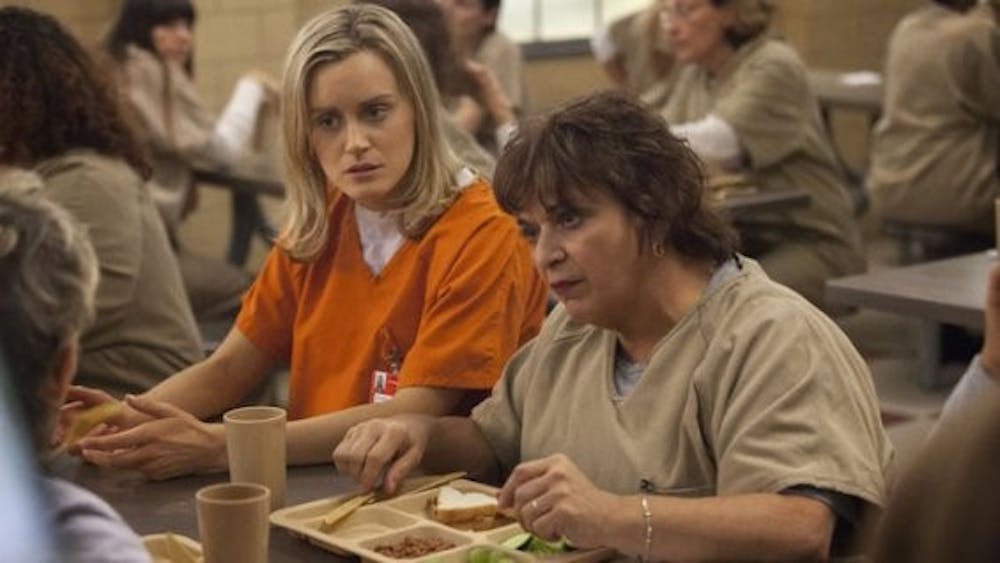Warning: Review contains spoilers.
In the current transformative age for television, Netflix original series “Orange Is the New Black” unlocks the metaphorical prison door to authentic Internet programming. The show’s well-crafted second season, which debuted online June 6, has effectively transitioned OITNB from shiny pop culture toy to a well-established favorite. Described as an “ensemble piece” by Taylor Schilling — who stars as the show’s protagonist, Piper Chapman — OITNB’s sophomore season delves further into the backstories of Litchfield Penitentiary inmates and raises questions of power and relationships.
The show’s focus on racial tensions provides an avenue for creator Jenji Kohan to explore the concept of power in season two. White, Latina and black inmates gravitate toward Red, Gloria and Vee as their respective mother figures. Kohan’s divisive elements expose tension both between and within groups. Vee manipulates the girls against one another while threatening Red in order to safeguard her illicit drug trade. The cast’s diversity helps it to drive home these tensions in a continually engaging way.
The show also explores the relationship between inmates and prison personnel. Warden Natalie Figueroa’s disregard for the prisoners’ well being sparks questions about injustice and abuse of power. The show’s portrayal of inmates’ powerlessness gives viewers a more empathetic perspective on incarceration.
Kohan takes the playful, often irreverent humor from season one and amplifies it. The comedy blends into the storyline instead of sidetracking, and even minor characters throw some zingers: stringy Leanne Taylor exclaims in one episode, “You’ve been lording over this group like some Hillary Clinton dictator, and we want to be a democracy.”
The show’s greatest strength, however, is its continued use of flashbacks to delve into the inmates’ pasts. The flashbacks deal with heartbreak, but also condemn the women at times, helping the viewers to better understand characters rather than portray them all purely as victims or antagonists.
But OITNB misses the mark with Piper-Alex flashbacks. Young Piper’s obvious hair extensions give the scenes an air of phoniness. Despite Laura Prepon’s avid fan following, her flashback performances as Alex don’t add much depth to the storyline. In an attempt to be sultry, she delivers lines with what appears to be sheer boredom, making Alex and Piper’s connection less believable.
Prepon’s monotone wasn’t the only flaw: Piper’s family and friends outside of prison grew more irritating and two-dimensional as other characters thrived. In the second installment, Kohan delved into complex characters like Sam Healy, who uses prison therapy group as a method to fabricate a sense of control, and Rosa Cisneros, a cancer patient struggling to reconcile her death behind bars. In comparison, Larry’s whining falls flat.
Season two of “Orange Is the New Black” doesn’t disappoint. It contains real women, smart humor and a thought-provoking message. So if you haven’t already, hunker down with your laptop and be prepared to get trapped in Litchfield along with the inmates.







